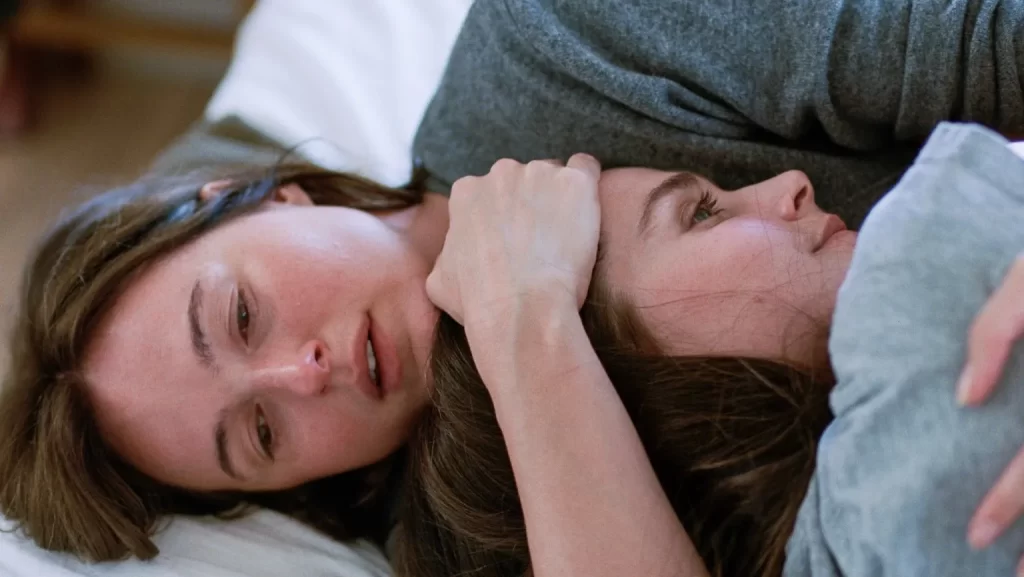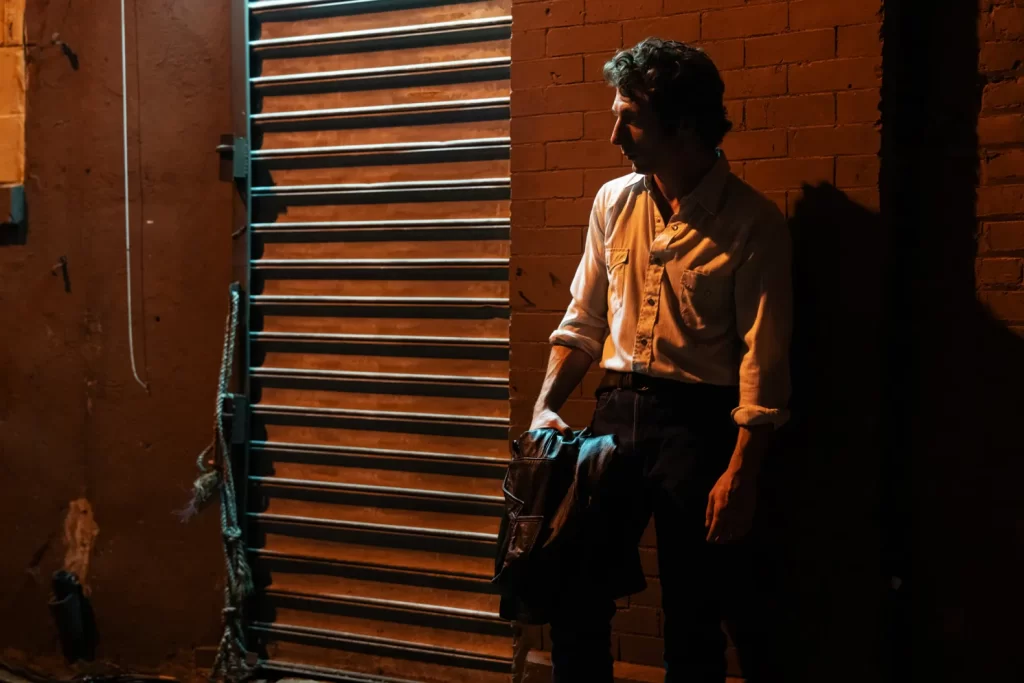There’s a scene in Noah Baumbach’s Jay Kelly where George Clooney, as the title character, stands in front of a bathroom mirror and says his own name to himself, over and over. He gives it several different readings, switching his emphasis, his emotion, his expression. And then he starts saying other names too: Cary Grant, Clark Gable, so on. It’s hard to think of another contemporary actor who could get away with this — with either making that kind of repetition compelling, or with (at least in character) comparing himself to the stars of Hollywood’s golden age.
And yet George Clooney can. From his rise to stardom in the mid-1990s, he’s been compared to those old-school guys, in a way that none of his contemporaries were, and no one has since. I’m not aware of the origin story of Baumbach’s latest, but I have to imagine its very making hinged on Clooney taking the role, because it’s impossible to imagine anyone else pulling it off. (He even wrote the character as hailing from Clooney’s home state of Kentucky.) Yet it’s not just a question of star wattage, or persona, that makes his work here so riveting. Clooney has entered what I refer to as the Paul Newman Era — that special point in an older actor’s life when they’ve been doing it so long, and have become so comfortable on screen, that they just exist there, seemingly incapable of a false note or gesture.
And yet that kind of ease — that refusal to “show the work,” which what is currently confused with Method acting involves — means that sometimes he is criticized for “just playing himself,” and so is Jay Kelly, the movie star he plays here. And that is one of the many subjects of this busy picture. There are plenty of movies out there about acting, and/or about moviemaking. This one is specifically about being a star, and when you’re a star, one of his early acting teachers tells Jay, “You have to act twice; once when you play the part, once when you play yourself.”
Baumbach has made movies that live on the fringe of the entertainment industry before; this one is squarely centered in it, opening with a loving dramatization of the overlapping chaos of a movie set. (In a nice little in-joke for movie nerds, the film being shot is titled Eight Men From Now.) He populates Jay Kelly with actors from his previous films: Josh Hamilton (Kicking and Screaming), Carlos Jacott (K&S, Mr. Jealousy), Adam Sandler (The Meyerowitz Stories), Laura Dern (Marriage Story), Greta Gerwig (you know). Baumbach even appears himself, briefly — as a film director.
But the focus is Jay Kelly, played by Clooney as a guy who is, well, very much like George Clooney. Baumbach’s emotionally wise screenplay catches him at an inflection point; he’s just wrapped a movie, and is starting another one quickly, but a pending empty nest (his youngest daughter is about to head off to college) causes a bit of a breakdown. A film festival in Tuscany wants to honor him, and at first he refuses (“No tributes”), but when he realizes that trip would allow him to barge into his daughter’s European vacation, he decides to go — and ends up reexamining his life and career along the way.

So what we have here is the Wild Strawberries / Deconstructing Harry template, with extended flashbacks to key moments in Jay’s past, often with him watching as a spectator (just like his audience). These sections are hit and miss; some have the specificity of the genuinely personal, or the warmth of shared nostalgia, while others feel more generic. And Jay Kelly is at its best when it is most personal, when Baumbach is willing to risk alienating his (potentially) giant Netflix audience by really digging into movies, as both a money-making industry and a personal art.
For example, the early scenes are nakedly therapeutic, with the director/co-writer (Baumbach wrote it with co-star Emily Mortimer) working through his grief for the loss of his longtime friend, mentor, and collaborator Peter Bogdanovich. Here, Jay remains close with the director who gave him his big break, who is literally also named Peter; they call each other “Son” and “Pop,” as Baumbach and Bogdanovich did; the director references “the prostitute picture,” surely a reference to Bogdanovich’s last completed film, She’s Funny That Way (on which Baumbach is credited as executive producer); and then, most familiar of all, Jay is told at the funeral that “he wanted you to have one of his neckerchiefs.”
The vast majority of those who see Jay Kelly will have no idea that any of this is a reference to anything in particular, but it’s some of the most warm and heartfelt material in the movie. And only those who read the trades may know that Baumbach recently, and somewhat acrimoniously, left his agents of two decades at CCA for rivals UTA. That lends considerably more juice to the picture’s primary relationship, between Jay and his long-time, long-suffering manager Ron (played with real sensitivity by Adam Sandler). The examination of their dynamic, equally professional and personal, is some of the best stuff in the movie; when Jay tells Ron, “You’re my friend who takes 15% of my income,” it cuts.
One wishes that Baumbach would’ve been willing to make a movie that’s entirely and unapologetically inside baseball, and just went for it. It feels, however, like he had to offset the show-biz material with more general tear-jerker bad-dad stuff, pitching it like a middlebrow crowd-pleaser to avoid alienating the Netflix scroller. But he just ends up undercutting what works, and several of the sentimental moments land with a thud (hindered, not helped, by the sad bastard score, a rare whiff from Nicholas Brittel).
The result is an odd duck of a movie that feels personal and specific, and yet also somewhat anonymous. But the performers are all at the top of their game, the closing passages are truly moving, and boy, that George Clooney. That’s a movie star, right there.
B-
“Jay Kelly” is out this weekend in limited release. It streams on Netflix on December 5.



